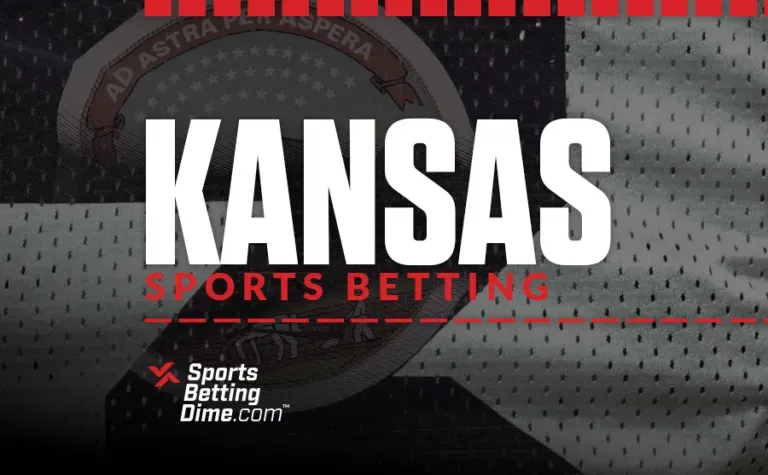Kansas Sports Betting: License Extensions in Doubt

Kansas sports betting is currently facing a pivotal moment as lawmakers have put the future of the Kansas sports betting license extensions into question. Recently, a budget provision was approved by the House of Representatives, which may impose restrictions impacting sports wagering in Kansas. This amendment could halt negotiations and contracts related to the management of sports betting at lottery gaming facilities. Although the immediate impact on the Kansas sportsbook operations appears minimal, the long-term effects cast uncertainty over the Kansas sports betting market. As the landscape evolves, attention will be drawn to the implications of these regulations on both operators and consumers alike, making this an exciting time for sports fans and bettors in Kansas.
In a landscape rapidly evolving with new developments, the world of wagering on sporting events in Kansas has become a focal point of regulatory scrutiny. The state’s lawmakers are grappling with significant changes that could reshape the nature of the gaming ecosystem. Recent legislative actions have introduced new stipulations regarding the management of betting contracts, prompting discussions about the viability of various operators within this lucrative sector. With a keen eye on evolving sports betting regulations, stakeholders are considering potential adjustments to the market structure that could influence consumer access and participation. As the dynamics of sports wagering in Kansas continue to unfold, both enthusiasts and industry players will watch closely to understand how these changes impact the overall betting environment.
The Implications of Kansas Sports Betting License Extensions
The recent developments surrounding Kansas sports betting license extensions have raised significant concerns among stakeholders within the industry. Following the latest budget provisions approved by the House, the future of sports wagering in Kansas appears to be in jeopardy. This amendment restricts the Kansas Lottery from engaging in contract negotiations related to the management of sports wagering, casting doubt on the sustainability of existing partnerships with major sports betting operators. Given that many licenses are set to expire in 2027, the uncertainty created by these regulatory changes could lead to further complications in the Kansas sports betting market.
As a result, the focus now shifts to how this policy shift could impact bookmakers operating in Kansas. Industry leaders have voiced their concerns about the perceived recklessness of the decision-making process, arguing that it jeopardizes a successful, regulated market, pushing potential customers towards illegal alternatives. The increased regulatory scrutiny might stifle growth opportunities for sports betting companies, resulting in a loss of valuable tax revenue and consumer protections. Stakeholders are urging lawmakers to reconsider the implications of these changes before they take effect, advocating for a more stable and competitive environment.
Kansas Sports Betting Market: Current Status and Future Prospects
The Kansas sports betting market has shown promising growth, with a reported handle of $248.4 million and an increase in revenue of 12.4% year-on-year as reported for March 2024. Despite a slight dip in overall handle, the upward trajectory in revenue indicates the potential for a robust sports wagering landscape in the state. However, recent legislative changes threaten to undermine this progress, casting doubt over the continuation of fair competition among sportsbooks. If a single-source model is pursued, as speculated by some officials, it could lead to outcomes similar to those witnessed in Washington, DC, where monopolistic frameworks failed to generate the expected economic returns.
The Kansas sports betting license situation needs immediate attention from lawmakers who must recognize the bigger picture regarding regulation and market structures. Without addressing the limitations brought by the new amendment, there’s a strong chance that Kansas could lag behind other states that have embraced competitive markets. As seen in other regions, a diversified sports betting landscape, with multiple operators, typically leads to improved revenues for the state while providing consumers with more choices. It is imperative for stakeholders to engage in dialogue with legislators to advocate for sensible regulations that will foster a thriving Kansas sports betting market.
Challenges Facing Kansas Sports Betting Regulation
The landscape of sports betting regulation in Kansas is evolving rapidly, posing various challenges for both operators and consumers. The recent budget amendment has led to fears of increased constraints on the Kansas sports betting market, possibly limiting the ability of sportsbooks to compete effectively. As other states have adjusted their regulations to accommodate more dynamic tax structures, Kansas’ resistance to change could hinder its ability to attract and retain top-tier operators. This stagnation may lead to diminished revenue opportunities as consumers might explore alternative markets with better conditions.
Furthermore, the fallout from this amendment extends to consumer protections, with stakeholders warning that restrictive policies could push patrons towards unregulated gambling platforms. Such a shift would not only deprive the state of tax revenue but also expose bettors to risks associated with illegal gambling. The industry is rallying to encourage lawmakers to consider how excessive regulations could endanger the integrity of the sports betting framework in Kansas. Comprehensive strategies must be devised to enhance regulation while promoting a competitive environment that benefits both operators and consumers alike.
Industry Reactions to Kansas Sports Betting Amendments
Responses from major industry players regarding the recent Kansas sports betting legislation have been overwhelmingly critical. Organizations like the Sports Betting Alliance, along with other representative bodies, have expressed strong disapproval of the proposed contract restrictions. The sentiment shared among these stakeholders is one of disbelief, as they see the legislative move as short-sighted and potentially detrimental to the thriving sports betting ecosystem in Kansas. Lobbyists are calling for constructive engagement between state lawmakers and industry professionals to promote policies that bolster the sports wagering experience for Kansans.
Moreover, concerns extend beyond operational implications, as critics argue that the changes might incentivize illegal gambling activities that operate without tax liability or consumer protections. The collective urge from industry players emphasizes the need for a balanced approach to sports betting regulations that both safeguards public interest and fosters a competitive market. Such regulatory clarity would not only benefit existing operators but would also attract new entrants to the Kansas sports betting market, ensuring sustained economic growth.
Future of Sports Wagering in Kansas: What Lies Ahead?
The future of sports wagering in Kansas hangs in uncertainty, especially with the potential for sweeping changes ahead of the amendment’s expiration. As the deadline approaches, stakeholders are cautiously optimistic that lawmakers may reassess their stance on contract restrictions. There’s a genuine hope that a more collaborative approach to regulation can emerge, preserving the balance between state interests and the industry’s needs. The prospect of a healthy regulatory framework remains vital for ensuring that Kansas can leverage its sports betting potential effectively amidst rising competition from neighboring states.
Additionally, the broader implications of federal oversight, as suggested by the SAFE Bet Act, could further complicate local dynamics. Kansas could find itself navigating a complex regulatory landscape that requires careful adaptation. As both challenges and opportunities present themselves, there remains a pressing need for strategic dialogue among regulators, operators, and consumers to chart a clear path forward. The outcome of these discussions will likely shape the trajectory of the Kansas sports betting market for years to come.
Monopoly vs. Competition in Kansas Sports Betting
The question of establishing a monopoly versus a competitive landscape in Kansas sports betting comes into sharp focus following the legislative amendments. Many industry experts assert that monopolistic models undermine consumer choice and limit the potential for healthy revenue growth. A single-source approach may initially seem beneficial in streamlining operations, but historical data from markets like Washington, DC, reveals significant drawbacks in terms of overall market performance and consumer satisfaction. The compelling case against monopolistic frameworks bolsters the argument for advocating a diverse range of options for bettors in Kansas.
Conversely, evidence from other states showcases how fostering competition among multiple operators has consistently yielded better outcomes for consumers and state economies alike. Enhanced competition tends to drive innovation, improve customer service, and ultimately expand the tax base as more consumers engage with regulated operators. For Kansas to maximize its sports betting potential, it must embrace regulations that encourage competition instead of reverting to potentially harmful single-source restrictions. Implementing frameworks that reward a diverse betting ecosystem is essential for sustaining the industry’s growth and ensuring consumer welfare.
Impact of Legislative Changes on Kansas Sports Betting Revenue
The impact of recent legislative changes on Kansas sports betting revenue cannot be understated. As Kansas continues to navigate complex regulatory waters, the introduction of restrictions on license renewals poses significant threats to the state’s financial trajectory. With revenue figures indicating growth, any disruptions in operational capacities due to legislative barriers would likely hinder progress. The amendment affecting contract negotiations suggests a looming risk of reducing players in the market, which could ultimately translate to diminished tax revenues for the state.
Furthermore, as seen in other states with similar regulatory shifts, the ramifications can extend beyond just immediate revenues. If operators start to withdraw from Kansas due to unfavorable conditions, the long-term financial implications become dire. The importance of maintaining a stable and inviting climate for sportsbooks cannot be overlooked; instability leads to uncertainty among operators, discouraging investment in customer acquisition and market innovation. In essence, the way forward for Kansas sports betting hinges on the ability of lawmakers to facilitate a regulatory environment that nurtures sustained revenue streams without imposing crippling limitations.
Understanding Kansas Sports Betting Regulations
Understanding the intricate landscape of Kansas sports betting regulations is crucial for all participants in the industry, from operators to consumers. The recent amendments have sparked widespread concerns, prompting stakeholders to closely examine the fine print and anticipate their implications. As the state legislature grapples with balancing regulatory oversight and market growth, it is imperative that those involved in sports wagering remain informed about unfolding developments. Awareness of current regulations—including the nuances of licensing and compliance—is essential for operators seeking to navigate this challenging terrain smoothly.
Beyond compliance, understanding the broader context of these regulations offers insights into how they affect market health and consumer engagement. Key stakeholders, including industry advocates and lobbyists, consistently emphasize the need for a regulatory framework that promotes transparency and fairness. This engagement is vital not only for current operators but also for prospective entrants who may be considering the Kansas market. As various stakeholders work together to establish clear and favorable regulations, the potential for a thriving sports betting environment in Kansas continues to grow, benefiting both the state’s economy and its consumers.
Trends in Kansas Sports Betting and Comparison with Other States
Trends in Kansas sports betting illustrate a fascinating transition within the realm of regulated gambling, particularly when compared to its peers in the region. Despite the recent challenges posed by legislative amendments, Kansas has demonstrated a notable ability to attract robust wagering volumes, as evidenced by increasing revenue figures even amidst regulatory uncertainty. Analyzing these trends in conjunction with developments in neighboring states reveals a broader narrative of evolution within the sports betting landscape—one that highlights the importance of adopting responsive and adaptive regulatory measures to capitalize on the lucrative sports wagering market.
In contrast, states like Illinois and Ohio have implemented dynamic tax models that adapt to their revenue requirements, presenting a stark variation in approaches compared to Kansas’ recent legislative maneuvers. The competitive edge gained by states employing favorable tax rates and regulatory frameworks has become increasingly apparent as they successfully draw more operators and consumers. For Kansas to stay competitive, it must consider benchmarking its regulations against those that have yielded success in other states. A deeper examination of these comparative models will be instrumental in shaping future policies that promote sustained growth and healthy economic contributions from the state’s sports betting ecosystem.
Frequently Asked Questions
What is the current status of the Kansas sports betting license extensions?
The current status of Kansas sports betting license extensions is uncertain following a new amendment passed by the House of Representatives. This amendment prohibits the Kansas Lottery from renewing or negotiating contracts for the management of sports wagering through fiscal years 2025 and 2026. While licenses for existing sportsbooks will remain valid until August 27, 2027, the future of these extensions is currently in question.
How will the recent budget amendment impact sports wagering in Kansas?
The recent budget amendment could significantly impact sports wagering in Kansas by creating uncertainty around the continuation of existing sportsbook contracts beyond 2026. Although wagering is not prohibited, the amendment complicates the market structure, potentially pushing customers towards illegal gambling options if the regulated market struggles to adapt to these changes.
What major sports betting operators are currently active in the Kansas market?
The major sports betting operators active in the Kansas market include FanDuel, DraftKings, BetMGM, Fanatics, Caesars Sportsbook, and ESPN Bet. These companies currently hold licenses that allow them to operate until August 27, 2027, although recent legislative changes have raised questions about the longevity of these licenses.
How does Kansas sports betting revenue compare to previous years?
In March, Kansas sports betting reported a handle of $248.4 million and $8 million in revenue, indicating a slight decrease of 1.7% in handle year-on-year, while revenue saw an increase of 12.4% compared to March 2024. This reflects the Kansas sports betting market’s ongoing growth despite the emerging regulatory challenges.
What are the implications of a single-source sports betting model in Kansas?
Implementing a single-source sports betting model in Kansas could lead to decreased competition and limit tax revenues, as seen in Washington D.C., where a sole-source framework initially underperformed. A lack of competition can negatively impact consumer choice and overall market health, potentially deterring future investments in Kansas sports betting.
What concerns did industry representatives express regarding recent Kansas sports betting regulations?
Industry representatives, such as those from the Sports Betting Alliance (SBA) and the iDevelopment and Economic Association (iDEA), expressed concerns that the recent amendments threaten the stability and success of the Kansas sports betting market. They argue that these regulatory changes could lead to less consumer protection and an increase in illegal gambling, undermining the objectives of a regulated marketplace.
What is the long-term outlook for sports betting in Kansas?
The long-term outlook for sports betting in Kansas remains uncertain due to recent legal amendments affecting license extensions, which could impact operational stability for sportsbooks. While there is potential for a resolution, ongoing policy changes may create challenges for market growth and sustainability.
| Key Point | Details |
|---|---|
| Budget Provision | A new budget amendment restricts funds for negotiating contracts related to sports betting management until FY2026. |
| Impact on License Extensions | Existing contracts with sports betting operators are valid until 2027, but the amendment raises concerns about future operations. |
| Reactions from Stakeholders | The Sports Betting Alliance and iDEA criticized the amendment, labeling it as harmful and potentially leading to illegal gambling. |
| Recent Sports Betting Performance | As of March 2024, Kansas sports betting saw a handle of $248.4 million, marking a slight decrease from the previous year but a revenue increase of 12.4%. |
| Potential Policy Changes | There are discussions about shifting to a single-source model for licensing, which has historically performed poorly in other regions. |
Summary
Kansas sports betting faces uncertainty due to recent legislative changes, specifically concerning license extensions for operators. Following a new budget provision approved by the House of Representatives, the Kansas Lottery has restrictions on negotiating contract renewals for managing sports wagering. While existing licenses remain valid until 2027, there are concerns about the long-term future of the sports betting market in the state. This situation highlights a broader trend of regulatory challenges across the nation that could impact both revenues and the consumer experience.




